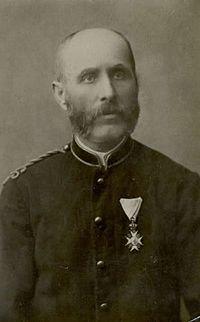
Slovenians tend to be proud of their musical heritage, and several songs composed in Slovenia have become well-known even outside the country’s borders. One talented Slovenian composer was even responsible for the national anthem of Serbia.
Davorin Jenko was born in a small Upper Carniolan village in 1835. A talented musician, he had moved to Vienna as a young man, and founded a Slovenian choir in the Imperial capital. He later moved to Serbia, then newly independent from the Ottoman Empire, and became a prominent composer for the Serbian National Theater.
During his theater career, Jenko composed a number of operettas and other songs for the stage. One of them became exceptionally popular among ordinary Serbs, and soon emerged a mainstay at events across the country. Its lyrics, the work of Jovan Đorđević, changed over time, but its melody achieved the status of a folk tune and was even referred to as the "Serbian national prayer."
When the Obrenović dynasty, who ruled the young Serbian state, decided to adopt a new national anthem, Jenko’s popular composition was a perfect choice. The anthem was dubbed Bože pravde ("God of Justice") and remained official use until Serbia was incorporated into Yugoslavia in the wake of World War I.
Jenko, meanwhile, moved back to his native Slovenia and died in Ljubljana in 1914. His substantial opus included a number of Slovenian patriotic songs, including Naprej, zastava Slave ("Onward, the Flag of Gory"), which later served as the anthem of Slovenia when it was still a republic of Yugoslavia, and is now the anthem of the Slovenian Armed Forces. Its lyrics were penned by his brother Simon Jenko.
But Bože pravde remained Jenko’s most internationally famous work, and the dissolution of Yugoslavia saw the song regain its official status as the Serbian national anthem. It had never been forgotten in Serbia and was officially readopted when Serbia and Montenegro became independent countries in 2006 - with minor modifications of the original lyrics to reflect that fact that the country was now a republic rather than a monarchy.
Today, a major musical competition in Belgrade carries Jenko’s name, as do schools in both Serbia and Slovenia. Recently, the Serbian ambassador in Slovenia laid flowers on Jenko’s grave, acknowledging the legacy of man whose music brought the two nations closer together.

































































